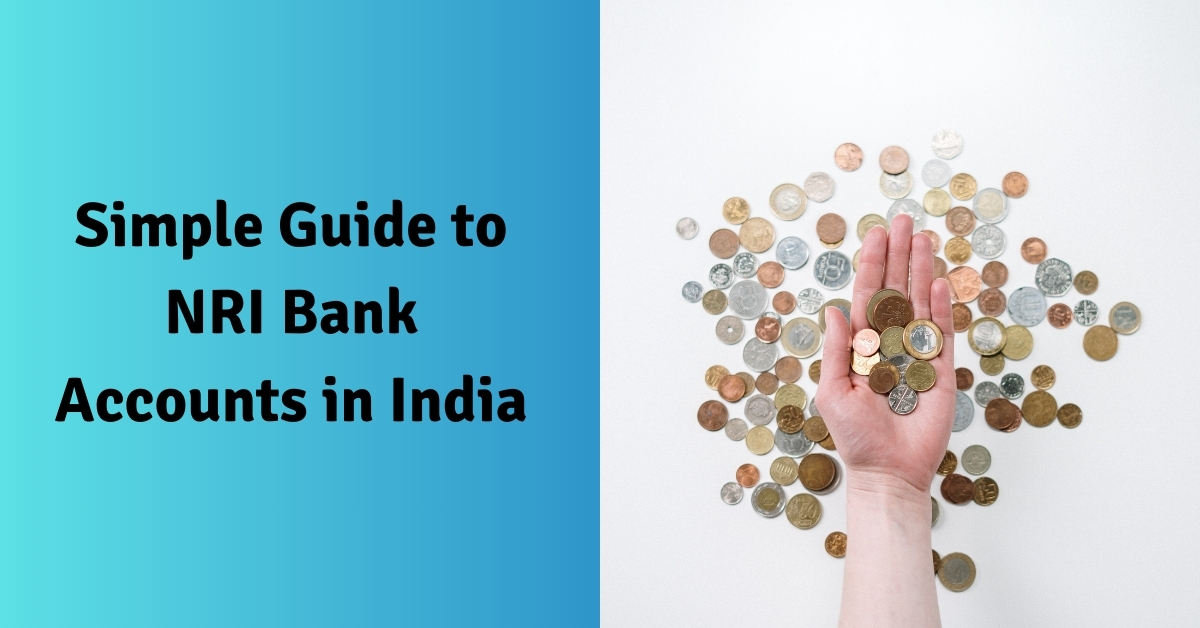Simple Guide to NRI Bank Accounts in India

Many Indians live outside India. They’re called NRIs. About 32 million NRIs live in different countries. They need special bank accounts in India. Let’s learn about these accounts!
What is an NRI Account?
An NRI account is a special bank account for Indians living outside India. It helps them manage their money in India while living in another country.
Types of NRI Accounts
There are three main types:
- NRE Account:
- For money earned outside India
- No tax on interest
- Easy to send money back to other countries
- NRO Account:
- For money earned in India (like rent)
- You pay tax on interest
- Good for paying bills in India
- FCNR Account:
- Keep money in foreign currency
- No tax on interest
- Protects your money from changes in currency rates
Why Have an NRI Account?
- Easy to move money between India and other countries
- Some accounts don’t charge tax on interest
- Some let you easily send money to other countries
- Keeps your money safe from currency changes
Best NRI Savings Accounts for 2024
Here are some good banks for NRI accounts:
- Yes Bank: Gives good interest, need to keep at least ₹10,000 in account
- IDFC First Bank: Gives very good interest, need to keep at least ₹10,000 in account
- ICICI Bank: No tax on interest, easy to send money to other countries
- HDFC Bank: Can use internet banking and international debit card
- SBI: No tax on interest, can use internet banking
- Kotak Mahindra Bank: Can keep money in different currencies, no tax on interest
How to Choose the Best Bank?
Think about these things when choosing a bank:
- Interest Rate: Higher is better. Some banks give up to 3.50% interest.
- Fees: Choose a bank with low or no fees.
- Easy to Send Money: Make sure you can easily send money to other countries.
- Online Banking: Look for good internet and mobile banking services.
- Customer Service: Choose a bank that helps you quickly when you need it.
Conclusion
Choosing the right NRI account is important for managing your money while living outside India. Learn about the different types of accounts, compare what different banks offer, and make sure you can open the account you want.
FAQS’
1. What are the different NRI accounts in India?
Ans- There are three main types: NRE (for money from outside India), NRO (for money earned in India), and FCNR (for keeping money in foreign currency).
2. What should NRIs think about when choosing an account?
Ans- Think about interest rates, how easy it is to send money to other countries, taxes, fees, and online banking services.
3. What makes NRI accounts different from each other?
Ans- Some don’t charge tax on interest, some make it easy to send money to other countries, and some let you manage money you earn in India.
4. Can NRIs have more than one account in India?
Ans- Yes, you can have multiple NRI accounts in different banks in India.
5. Who can open an NRI account in India?
Ans- You need to be an Indian living outside India, a person of Indian origin, or an overseas citizen of India.
6. Do you need to keep a minimum amount of money in an NRI account?
Ans- Yes, most banks ask you to keep at least ₹10,000 to ₹1 lakh in the account.
7. What fees do NRI accounts have?
Ans- There might be fees for keeping the account, doing transactions, or changing currency. Different banks charge different fees.
8. Can NRIs use their accounts from outside India?
Ans- Yes, you can use online banking, mobile apps, and international debit cards to manage your account from anywhere in the world.
9. Is there a limit to how much money can be sent to an NRI account?
Ans- No, there’s usually no limit on how much you can send to your NRE or FCNR account, but check with your bank for any specific rules.
10. Can NRIs convert their NRO account to an NRE account?
Ans- Yes, you can convert money from your NRO account to an NRE account, but only after paying the required taxes on it.



